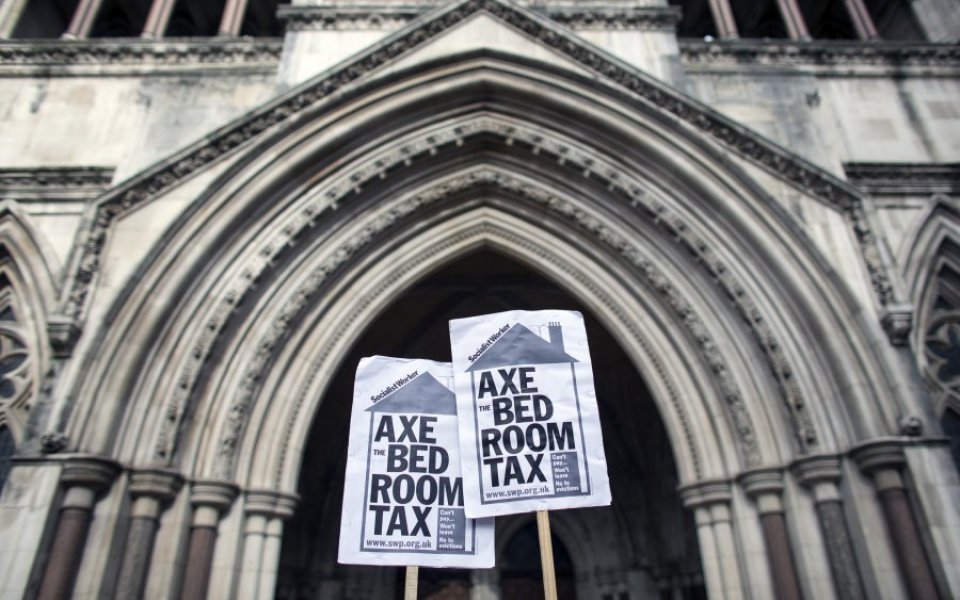Government loses court case after the so-called bedroom tax is labelled discriminatory by Court of Appeal judges

The government has lost a Court of Appeal case after judges declared the so-called bedroom tax discriminatory, following a legal challenge by a domestic violence victim and the family of a disabled teenager.
The Court of Appeal decision came after a hearing in November.
The government have said they will appeal against the ruling, according to the BBC.
The housing benefit change – which Labour dubbed the bedroom tax – is a cut in housing benefit for those who live in a council or housing association property and have what is classified as a "spare" bedroom.
One case was brought by a single mother living in a three bedroom council house that was fitted with a panic room to protect her from a violent ex partner. That case concerns the effect of the policy on women living in Sanctuary Scheme homes.
The second case was brought by Paul and Sue Rutherford. The case involved the impact of the bedroom tax on seriously disabled children who are in need of overnight care.
In each case the appellants said the policy unlawfully discriminated against them.
However, the government rejects the term "bedroom tax", insisting that what is in fact a "spare room subsidy" should be removed. The hope was to save nearly £480m a year from the housing benefit bill by encouraging people to move to smaller properties.
The housing benefit changes were introduced in April 2013. Families claiming housing benefits since then have been assessed for the number of bedrooms they need.
Campbell Robb, housing charity Shelter’s chief executive, said: “Today’s ruling is a significant victory for the many people living in fear of losing their home, and in real distress about what will happen to them as a result."
“It’s disappointing that instead of changing the law so that those with a clear need for their spare room are protected from the ‘bedroom tax’, the government has decided to appeal the decision. We would urge them to focus on protecting people unfairly hit by the charge, rather than wasting more time and money in court,” he added.
However, David Cameron, speaking at Prime Minister’s Questions today, said: “We always look very carefully at the judgements on these occasions – but of course, our fundamental position is that it’s unfair to subsidise spare rooms in the social sector if you don’t subsidise them in the private sector where people are paying their housing benefit.
“That is a basic issue of fairness. Isn’t it interesting that the first pledge he makes is something which could cost as much as £2.5bn in the next parliament? Who is going to pay for that?”